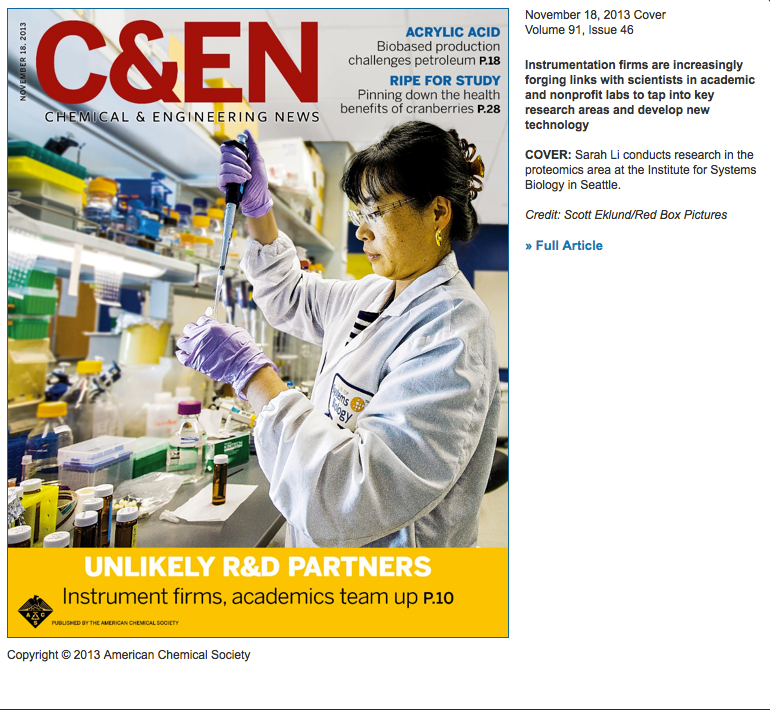ISB on Cover of C&En Magazine
 isbscience.org/news/2013/11/19/isb-on-cover-of-cen-magazine/
isbscience.org/news/2013/11/19/isb-on-cover-of-cen-magazine/
By ISBUSA
ISB researcher Sarah Li was featured on the cover of C&EN Magazine on Nov. 18. The cover story is about how instrumentation companies are teaming up with research organizations to gain access to valuable work that could help refine or develop new technologies. ISB's Dr. Robert Moritz comments about our collaboration with AB Sciex for the story.
Excerpt from the piece:
"Building on this work, AB Sciex formed a partnership with the Institute for Systems Biology, a Seattle-based nonprofit headed by Leroy Hood. In February, ISB and AB Sciex signed a three-year agreement to collaborate on developing MS methods and technology in proteomics, applying SWATH to build biomarker libraries.
ISB scientists have known people at AB Sciex for many years, says Robert L. Moritz, ISB’s research director for proteomics. “We have had very much aligned thoughts about advancing proteomics. The latest partnership was more formalized because it was much larger.” ISB uses AB Sciex instruments, and the two sides exchange people and expertise."





